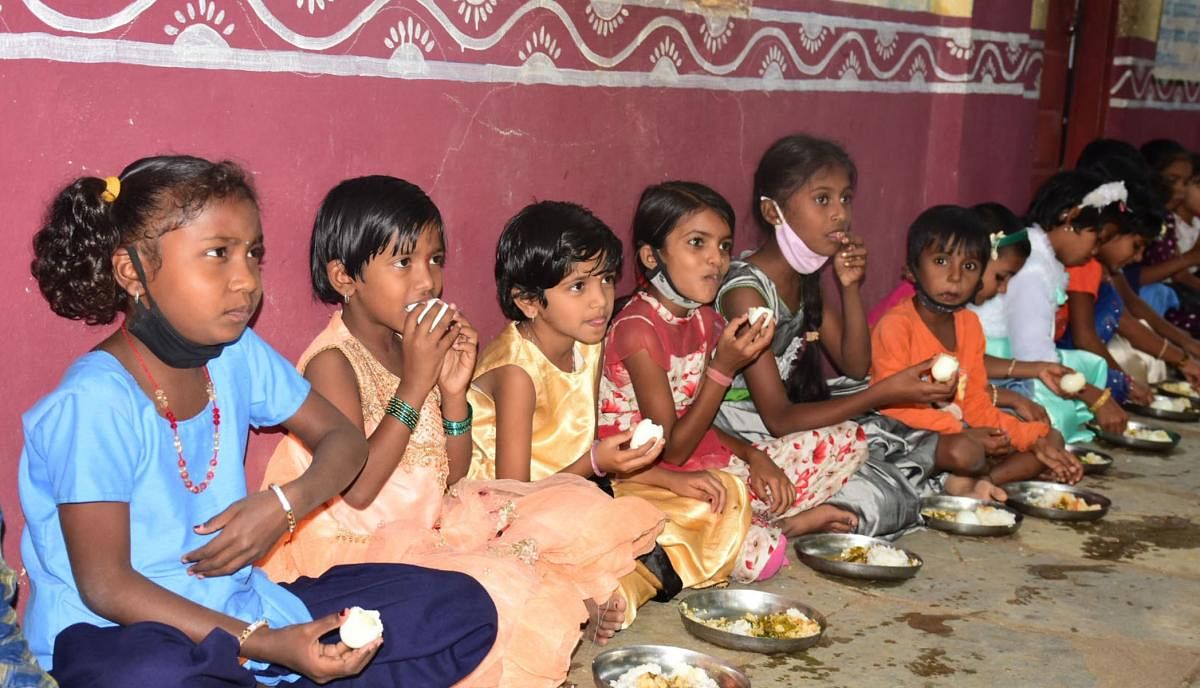
Following a study commissioned by the Karnataka government indicating that nearly 3.5 lakh children in the state are malnourished, the government has acted quickly by adding boiled eggs to the midday meal for school children in eight districts—Bidar, Kalaburagi, Yadgir, Raichur, Koppal, Ballari, Vijayanagara and Vijayapura—where the problem is most acute. Malnutrition has led to associated health issues like stunting (height not commensurate with age), wasting (weight not proportionate to height) and anaemia (deficiency of haemoglobin), among children, in addition to other ailments. India accounts for a third of the global burden of childhood stunting, which is considered a sinister form of malnutrition because it results in irreversible cognitive and physical consequences. In Karnataka, the prevalence of stunting is in the range of 17 per cent to 21 per cent, according to the National Family Health Survey (NFHS).
Chief Minister Basavaraj Bommai and Women and Child Development Minister Achar Halappa Basappa must be complimented for boldly going ahead with the decision to introduce eggs, brushing aside protests in the name of religious tradition and sentiments by some seers and even some of their party colleagues. These voices had successfully sabotaged the move in 2007 and 2015 when H D Kumaraswamy and Siddaramaiah were chief ministers respectively. This time, however, several organisations, including those representing Dalits and women, came out in support of the move and have cautioned the government against backtracking on its decision. They have, in fact, demanded that fish, another good source of protein, also be included in the menu.
Tellingly, of the 15 lakh children surveyed by the government, over 12.5 lakh, that is more than 80 per cent, voted in favour of eggs. Many schools have seen an increase in attendance after the introduction of eggs, which are among the best sources of proteins. Children from vegetarian communities will be given bananas as a supplement. Nobody has the right to interfere in the food habits of others and any attempt to deny a balanced diet to students from poor families suffering from malnutrition should be rejected. It must be noted that according to NFHS data, over 70 per cent of Indians consume meat, let alone eggs.
At a time when India lags behind on internationally accepted targets to end malnutrition, no child should go without nutritious food. Unlike his predecessors, Bommai has shown the courage to look at the larger picture on the issue. The government should not go back on its decision. Protecting the future of our children by ensuring their health and education during their growing-up years is the key to the nation’s health and prospects.
Check out the latest videos from DH: